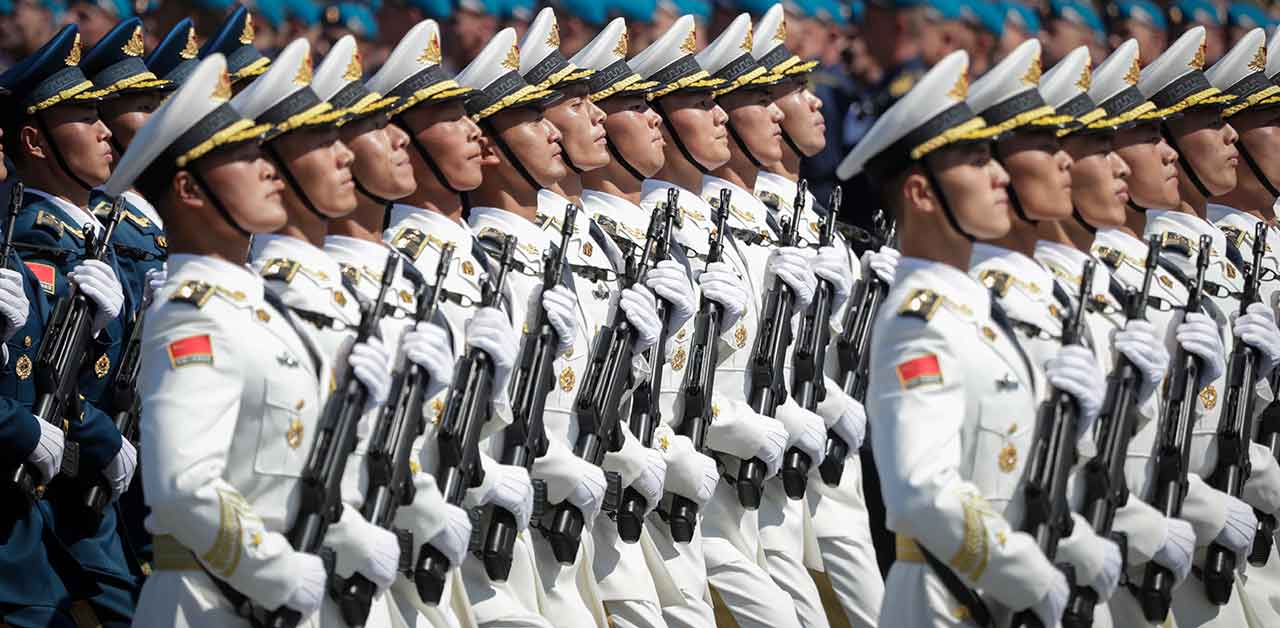Until recently, China was unmistakably trying to be a hegemon in the image of the United States (US), increasingly complementing its growing hard power with soft power. But China seems to have missed its opportunity to build a serious rival to, or even supplant, the existing world economic order fashioned by the US following World War II.
All the elements of success seemed to be falling into place for China. It launched the Belt and Road Initiative (BRI), a transnational infrastructure investment program intended to define a vision of a China-led, post-Bretton Woods world, much as the US Marshall Plan did for the post-1945 order. China also aggressively promoted the renminbi as an international currency, and persuaded the International Monetary Fund (IMF) to include it in the basket of reserve currencies underpinning Special Drawing Rights (the IMF’s unit of account) far sooner than was justified.
China also sought to take over leadership of international institutions; it currently heads five. It pushed to increase its voice in existing bodies such as the World Bank and IMF. And where it felt stymied, it established its own, such as the Asian Infrastructure Investment Bank and the New Development Bank.
The COVID-19 pandemic offered China an opportunity to cement this strategy of remaking the world economic order on its terms. It’s worth considering the possibilities.
For starters, as the world’s largest long-term creditor to low-income countries, China could have proactively and unilaterally declared a moratorium on all debt service owed to it. And it could have gone further. As Scott Morris and his colleagues at the Center for Global Development have shown, China’s lending terms – interest, grace period, and maturity – are much more onerous than those offered by the World Bank and its concessional lending arm, the International Development Association. China could simply have promised to eliminate this wedge.
Furthermore, China could have provided unconditional short-term liquidity – in both renminbi and US dollars – to developing and other economies facing major capital outflows. One irony of the post-2000 world is that the country most able to provide dollar liquidity is China, owing to its US$3 trillion-plus in reserves. The People’s Bank of China could have extended swap lines to all its developing-world counterparts.
Regarding trade, China could have offered freer market access to poorer countries ravaged by COVID-19. It could also have ramped up production of essential medical supplies to fight the coronavirus – face masks, testing kits, protective equipment, and ventilators – assuring their high quality and offering to make them available to any country via the World Health Organization (WHO) at concessional prices.
Such generous intervention would have shown that China was offering an alternative to US-led institutions. It could have repudiated its reputation as a usurious lender while entrenching the BRI. And while offering short-term dollar liquidity might have conflicted with China’s longer-term global aspirations for the renminbi, the self-restraint this move showed could have engendered a broader confidence in China, thus enhancing the renminbi’s prospects.
Instead, China’s recent actions have undermined its global aims. The geographic range and intensity of the Chinese regime’s belligerence are now familiar, with the ever-growing list of targets including Xinjiang, Tibet, Taiwan, Hong Kong, India, the South China Sea, the Philippines, Australia, Europe, the US, and Canada. And instead of being transparent regarding the origins of COVID-19, China has persuaded the WHO to connive with its own obfuscation.
The puzzle is why China is choosing aggression over magnanimity, or even over mere inaction. After all, China’s current leaders probably view America as a declining power that will soon organically vacate the hegemonic position that China seeks to occupy. If so, just as Deng Xiaoping, the father of China’s reforms 40 years ago, advised geopolitical patience until China became stronger, a Dengian strategy today would be to wait for the US to become weaker.
The obvious answer to the puzzle is Chinese President Xi Jinping and the regime that he both represents and has helped to create. But key elements of China’s earlier strategy – including the BRI and reserve-currency status for the renminbi – were Xi’s own signature gambits. So, what is driving the reversal?
Perhaps China’s leaders once again see the world through a victim’s lens. As they perceive it, the powerful West had kept a weak China in check since the early 1800s. Now that the roles are reversed, the regime believes it is time to correct historical injustices. With Xi’s aggressive insecurity having replaced Deng’s calm confidence, China now places a premium on settling its borders and returning to the glory days of the Middle Kingdom.
A darker possibility for the rest of the world is that China not only seeks historical justice, but is also gazing beyond its borders. It is in the nature of repressive, autocratic regimes to believe only in the currency of fear and hard power. In this view, Xi is merely reverting to type, following his idol Mao Zedong’s dictum that political power – both internally and externally – grows from the barrel of a gun. So, perhaps China’s recent aggression is not a bug but rather a feature of its strategy for supplanting the US.
In her book The Guns of August, the American historian Barbara Tuchman memorably captured the shift in geopolitical power from the United Kingdom (UK) to the US during World War I by saying that a strong America became an enfeebled UK’s “larder, arsenal, and bank.” In the wake of the COVID-19 pandemic, China could have achieved something similar vis-à-vis the US-led global order by becoming the development bank, central bank, and medical supplier to the world.
By choosing unprovoked aggression over enlightened generosity, China has squandered that historic opportunity and possibly also revealed its true character. Soft power, China appears to believe, is for wimpy democracies. Scorpions sting. The world must take steps to respond.
Related Articles:

